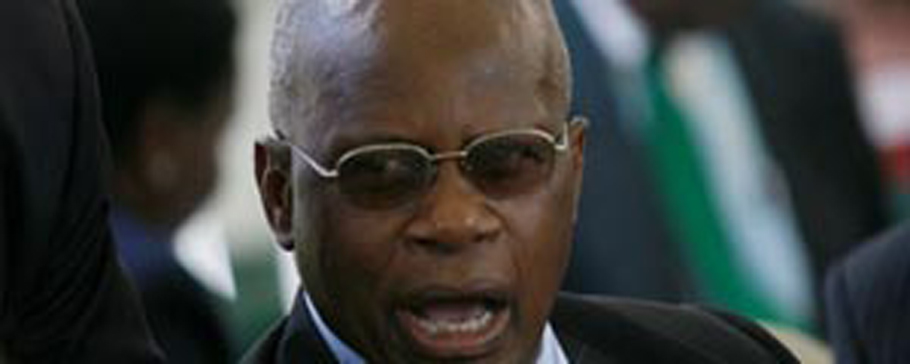
Ordinary Zimbabweans have expressed scepticism that the 2014 National Budget that Finance minister Patrick Chinamasa is presenting today will make any difference to the country’s faltering economy.
REPORT BY TAPIWA ZIVIRA/VENERANDA LANGA
In interviews conducted by NewsDay in Harare yesterday, several people expressed lack of confidence that the new government would craft measures that would stimulate business activity.
This comes at a time when official figures show that Zimbabwe’s key economic sectors — mining, agriculture and manufacturing — will underperform this year mainly due to funding constraints.
Faith Chasi, who owns a clothing shop, said the budget should focus more on making sure the duty paid for imported products is channelled to providing working capital to boost the local industry.
“The problem is it appears government has adopted a ‘hand-to-mouth’ system on collected revenue as we do not really see any improvement except that officials buy themselves expensive vehicles instead of working towards reviving the local industry that is teetering on the brink of collapse,” she said.
“It is clear government is getting so much revenue from border posts and if they could stop ‘consuming’ it and using it for capital projects, that would help.” Shepherd Kuringenyika, a civil servant, urged Chinamasa to “raise the income tax threshold so that those earning salaries below the poverty datum line are spared from the taxation”.
The current income tax threshold stands at $250, while the least paid civil servant earns just below $300.
- Chamisa under fire over US$120K donation
- Mavhunga puts DeMbare into Chibuku quarterfinals
- Pension funds bet on Cabora Bassa oilfields
- Councils defy govt fire tender directive
Keep Reading
The poverty datum line is estimated at $540 Kuringenyika further said he hoped there would be a salary increment for civil servants and called for the budget to prioritise the manufacturing sector that would create more jobs.
Fruit juice vendor Masimba Chingwaru (33) said Chinamasa should put in place measures to bring back cash into circulation.
He said the cash crunch was affecting his business as “people are no longer buying as they used to”.
Constance Ndaba, a 21-year-old student at a local college, said there was not much to expect from the budget.
“The indigenisation policy clearly scares away investors and as long as it remains in full force, we will not have new foreign direct investment which is key to economic growth,” Ndaba said.
Abnal Chingoma, a businessperson from Mufakose, said the Finance minister should allocate more funds to the health sector, particularly interventions on HIV/Aids so that the affected population has access to drugs and also towards drought relief measures.
A merchandiser from Chihota, Clarence Chirenje, called for well-thought-out financial policies to ensure banks have the capacity to take care of depositors’ demands and solve the current liquidity crunch.
Kudzai Bhude from Waterfalls, who is self-employed, called for adequate funding for agriculture, mining and education.











